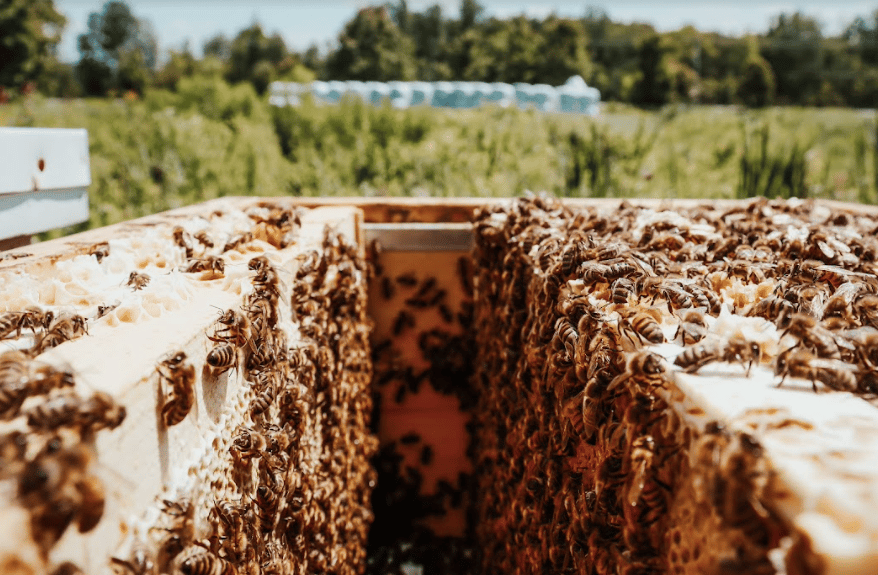Along with the massive use of pesticides, climate change is one of the greatest threats to the survival of bees and other pollinators, on which more than 70% of agricultural production for our food depends.
One alarming sign comes from 2017 honey production.
Data provided by the beekeepers of Unaapi (Unione Nazionale Associazioni Apicoltori Italiani) show that, due to the drought, honey production has dropped by 80%. Dry temperatures, in fact, have not allowed flowers to secrete more nectar and pollen, and bees, suffering such weather, have produced less honey.
The risk that climate change poses to bees has been researched by the Bioclimatology Research Center of University of Milan, which has analyzed meteorological observations since 1880 and satellite observations since 1978, confirming the impact of climate change on domestic and wild bees populations.
The outcome of the research highlights how rising planetary temperatures drastically affect the health of bees and the entire ecosystem. According to researchers at the University of Milan, honey production is also at risk and could disappear within 100 years. The winter temperatures recorded in recent decades, which are milder than the seasonal average, destabilize bees, which begin to swarm as if it were spring.
A situation that is alarming Belgian beekeepers: “The bees believe that spring has arrived – says one of them- the queen will start laying eggs again and the colony will grow. Then a cold period will return during which the colony will tighten again. There may not be enough bees to warm the brood that has been laid. Therefore, some of the brood may die. Ideally, we should have a good cold period for 2-3 months. But the heat and then the cold destroy the colonies.“
Above-average temperatures is a phenomenon that has also affected our country. Suffice it to say that in January, the province of Bergamo, recorded temperatures of nearly 15°C, far above the seasonal average.
This “unprecedented climatic madness” is disorienting bees, which in winter would normally cluster together to keep warm inside the hive, but, sensing almost autumn-like temperatures, fly around in search of food and flowers to pollinate. As Raffaele Dondoni, a beekeeper from Trezzo sull’Adda, tells us, the bees, fooled by the mild temperatures, find nothing to feed on and go into starvation.
It is necessary, thus, to keep them monitored and feed them with compounds of water, sugar and honey to prevent their demise.
